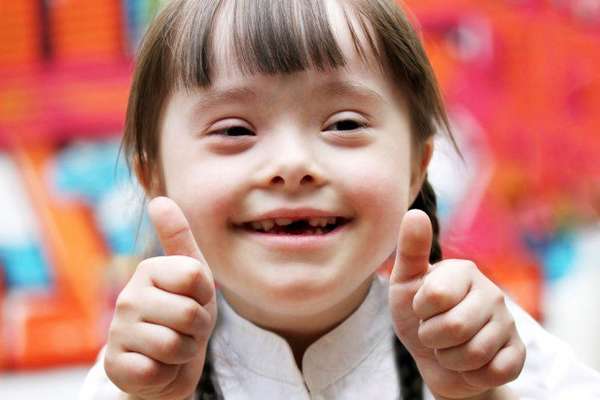
How Special ‘Special Children’ Are
21 Sep 2015 | 4 min Read
Prisha Lalwani (Mummasaurus)
Author | 71 Articles
We were having a cup of tea and enjoying a great conversation in the balcony. After all, my dear friend Ashima had visited me after months! Suddenly, I heard our daughters have a conversation and giggle. We wanted to participate in the joke and asked them about it. They pointed at a boy, sitting at a distance from our house, in the park and making weird sounds. He seemed to have, may be, Down’s Syndrome. He was accompanied by his mother, who seemed to be helpless with her son’s behavior. Our girls giggled and one of them said “Aunty dekho, wo ladka kaise awaaz kar raha hai … wo Pagal hai!” (Aunty, see how that boy is making sounds, he is Mad).
My heart sank deep into my chest and I felt jittery. Where do kids learn such verbiage from? PAGAL? That’s such a demeaning thing to say to anyone!! Kids don’t always learn things from their parents alone. They are often a mix of our values and things they learn from their friends, and evidently, not all of it has turned out to be positive enough.
Ashima and I immediately looked at each other and we knew we had to have a discussion with our girls and sensitize them towards special children.
“The first thing we need to do is to stop labeling children as “mad” or “stupid” or “mentally retarded”. We need to call them by their name. In case you need to describe them, you need to call them Special Children. How would you feel if your friends called you “Pagal”? Wouldn’t you hate it?” I explained to them. The girls looked at me in awe, as they realized their mistake.
“Whenever you go out and see a special child make noises that seem unnecessary to you, or if they get angry or tend to misbehave with their family members, do not instantly decide that you dislike them. Their emotions are not in their control. Always seek permission from their parents before you contact them. Their parents know them best and may be able to guide you if they are willing to have a conversation at that time or not”, said Ashima, further coaching them on a more appropriate behavior towards special children.
“If you get to know a special child and you see them often in the park, try being friends with them. Often meet them to say Hello. Check with their parents if you can shake hands with them or not, and I f they advise you not to, just wave a Hello to them. Also learn what kind of games can they play and try being a part of their games. They love to make friends, but get upset sometimes. If you be their friend, you will have to understand that, and be adjusting with them. Once comfortable, they are super cute, and you will know why they are called Special Children”, Ashima Smiled.
It seemed important to have this discussion then and there, for the instance had just happened. It seemed apropos to discuss it in detail, because special children need more of our kindness and acceptance, and not sympathy and rejection. They too are humans just like us and their family and they themselves go through a lot of struggle for even the smallest of things, which we often take for granted.
I instantly came up with an idea. I asked them “Ok, now let me give both of you a small project. Go to your school library and look for books with how to be friends with special kids. Search out your list of “10 Ways on How to be friends with Special Children” and we will discuss it day after tomorrow. Is that ok with us all?” The girls quickly nodded their heads, happy about their new learning and a fun project to do.
A


Suggestions offered by doctors on BabyChakra are of advisory nature i.e., for educational and informational purposes only. Content posted on, created for, or compiled by BabyChakra is not intended or designed to replace your doctor's independent judgment about any symptom, condition, or the appropriateness or risks of a procedure or treatment for a given person.
